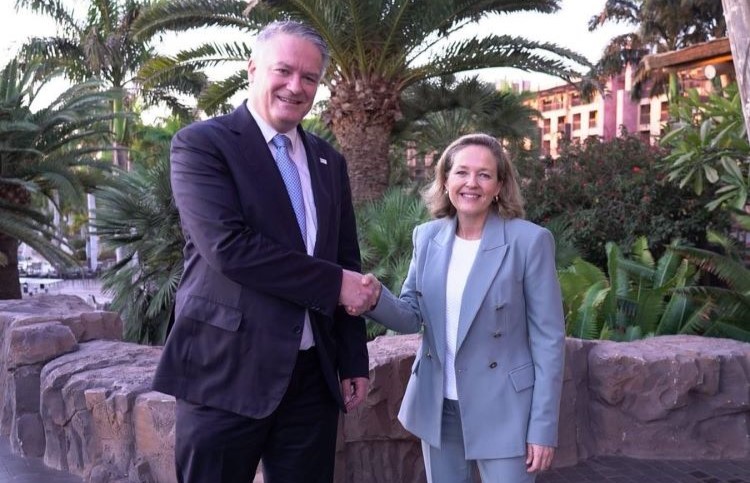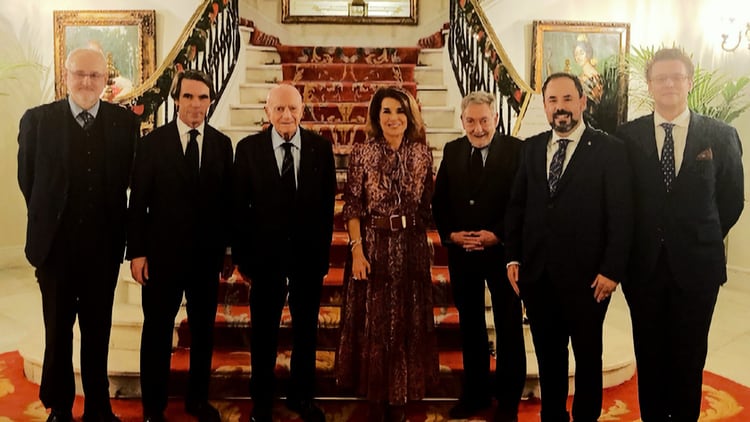The Diplomat
Las Palmas de Gran Canaria hosts since yesterday the fourth Ministerial Conference on Digital Economy of the Organization for Economic Cooperation and Development (OECD), an event, which, according to the First Vice President and Minister of Economic Affairs and Digital Transformation, Nadia Calviño, will allow to lay the “first stone” of the new global governance at an “absolutely key” moment.
More than 50 delegations from 50 countries and 40 senior OECD representatives, including ministers, deputy ministers and states secretaries, as well as leading national and international companies and SMEs, are participating in the conference. Among the attendees are about 20 ministers from countries such as Estonia, France or Finland, and another twenty state secretaries or deputy ministers in digital economy, in this case from countries such as the Dominican Republic, South Korea or Germany.
The Ministerial Conferences on Digital Economy do not have an assigned periodicity. So far only three have been organized: in 2016 in Cancun, in 2008 in Seoul and in 1998 in Ottawa. This will therefore be the first Ministerial Conference to be organized in Europe. The conference, which concludes today, has been jointly organized by the Ministry of Economic Affairs and Digital Transformation, the OECD and the Government of the Canary Islands.
On Tuesday evening, King Philip VI presided over the dinner on the occasion of the ministerial meeting. During the event, the monarch delivered remarks in which he stated that “the quest for better societies is now −and for the coming future− inevitably and tightly linked to the success of the digital transformation.” “This is the reason why for the next days you will discuss here how governments can find a balance between unleashing the benefits for all of the digital transformation while protecting people, society and economies from the risks it can create,” he continued. “This will include discussions around rights in the digital age, connectivity and other digital divides, the issue of online misinformation, and how to ensure the digital transformation supports the green transition and net zero goals,” he added.
In the press conference following the inaugural opening of the conference and her intervention in the panel Towards a human-centered and rights-based digital transformation, held yesterday, Calviño said that the meeting represents “the first stone” of a new global governance that favors a “humanist” digital transformation and puts people and constitutional rights at the center. All this is happening, she continued, at an “absolutely key” moment for the global economy and from a geopolitical point of view, in which digital transformation plays a “fundamental” role with a view to technological, economic, social or political change and has become especially important after the COVID-19 pandemic.
According to Calviño, Spain is a vanguard country “very committed” to democratic values in the new digital reality, as reflected in the Charter of Digital Rights, approved in 2021. According to the Ministry of Economic Affairs and Digital Transformation, “the approval of the Charter of Digital Rights and all the work that Spain has been doing since 2021 in this area have been decisive in hosting this multilateral meeting.”







